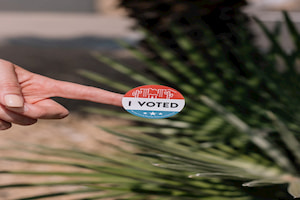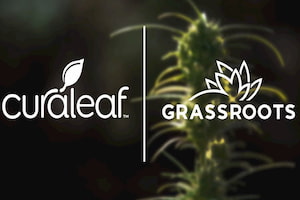
Illinois only recently started selling cannabis legally at dispensaries, but the state is already breaking records. Cannabis operators are raking in money as more and more people purchase marijuana for both recreational use and medical use. The booming cannabis market in Illinois bodes well for legalization efforts in other states as lawmakers can see the positive effects that cannabis legalization has on the Illinois economy.
Illinois Dispensaries Sell Millions of Cannabis Products
The cannabis industry is doing extremely well in Illinois, where cannabis was legalized for recreational use in June 2019. The law went into effect on January 1, 2020, which is when adult-use dispensaries opened across the state. Since that time, Illinois retail cannabis sales have steadily increased each month. In June, the most recent month for which sales data is available, Illinois cannabis shops sold $47.6 million worth of marijuana products. This number set a new monthly record, topping the previous high of $44 million just one month earlier.
There are nearly 60 dispensaries currently licensed to operate in Illinois. These state-licensed dispensaries sell recreational marijuana and medical marijuana. Since marijuana was first legalized at the beginning of 2020, Illinois dispensaries have sold more than $250 million in cannabis and cannabis-related products. According to the Illinois Department of Financial and Professional Regulation (IDOR), Illinois retail marijuana stores have made nearly one million individual sales of marijuana and marijuana products, with each purchase averaging around $48.
Increase in Illinois State Tax Revenues from Legal Marijuana Sales
The coronavirus pandemic has been disastrous for Illinois tax revenues due to early shutdown orders for most retail businesses, as well as the reluctance of many state residents to venture outside and enter retail stores even after the shutdown orders were lifted. But the same is not true of tax revenues from the legal sale of cannabis in Illinois. In fact, the cannabis industry is one of the few industries that has managed to thrive during the COVID-19 pandemic. While overall sales tax revenues in Illinois are currently down by more than $181 million when compared to the 2019 fiscal year, marijuana sales tax revenues continue to rise each month.
Although sales tax numbers for the month of June have not yet been released by the Illinois Department of Revenue, sales of cannabis have generated tens of millions of dollars in revenues for the state already in 2020. Government data shows that Illinois collected $52.7 million in sales tax from the legal sale of cannabis during the first five (5) months of 2020. Remarkably, this is almost double the amount that state lawmakers projected before cannabis use became legal in Illinois. Moreover, these figures are expected to rise even higher in the future as the cannabis industry becomes more accepted in the mainstream and better understood as a fundamental part of the U.S. economy.
How Cannabis Sales Tax Works in Illinois
Cannabis sales tax laws in Illinois work differently than similar sales tax laws on other types of retail products and goods. Illinois imposes different tax rates on cannabis based on the potency of the cannabis: 10% at the lowest end of marijuana potency and 25% at the highest end of potency.
The revenues generated from taxes on cannabis sales in Illinois are used to fund different government programs and agencies:
- General fund: 35%
- Community development revitalization program: 25%
- Substance abuse and mental health programs: 20%
- Legislative bill backlog: 10%
- Law enforcement agencies: 8%
- Public education and analysis of marijuana legalization: 2%
Any additional revenues generated from sales tax on legal cannabis in Illinois are used for the state’s general revenue fund.
Illinois Cities and Towns Benefit from Legal Cannabis Sales
Although dispensaries first started operating in Illinois on January 1 of this year, local municipalities such as towns, cities, and counties did not begin adding their own taxes until July. When this happened, the purchase price of cannabis products increased slightly: early estimates put the increased prices at somewhere between 3% and 3.75%. While customers now have to pay a little more for recreational and medical cannabis purchased at retail cannabis stores, Illinois municipalities will benefit greatly from the additional tax revenues generated by cannabis sales.
One aspect of legal marijuana sales that doesn’t always get the attention it warrants is the extent to which recreational cannabis helps to infuse local economies with much-needed cash through sales to out-of-state consumers. Sales data shows that roughly 25% of all adult-use recreational marijuana sales at Illinois dispensaries comes from buyers who travel across state lines.
Contact Scythian Cannabis Real Estate
Many investors are looking into cannabis real estate investing, which has provided strong returns as retail cannabis sales surge across the U.S. Scythian Real Estate is a cannabis real estate fund that specializes in retail properties. Scythian has partnered with some of the largest cannabis operators in the country, including Curaleaf and The Green Solution. For more information, email Scythian Real Estate today.
PLEASE NOTE THAT THIS BLOG IS NEITHER AN OFFER TO SELL NOR A SOLICITATION OF AN OFFER TO BUY SECURITIES IN SCYTHIAN REAL ESTATE FUND.




